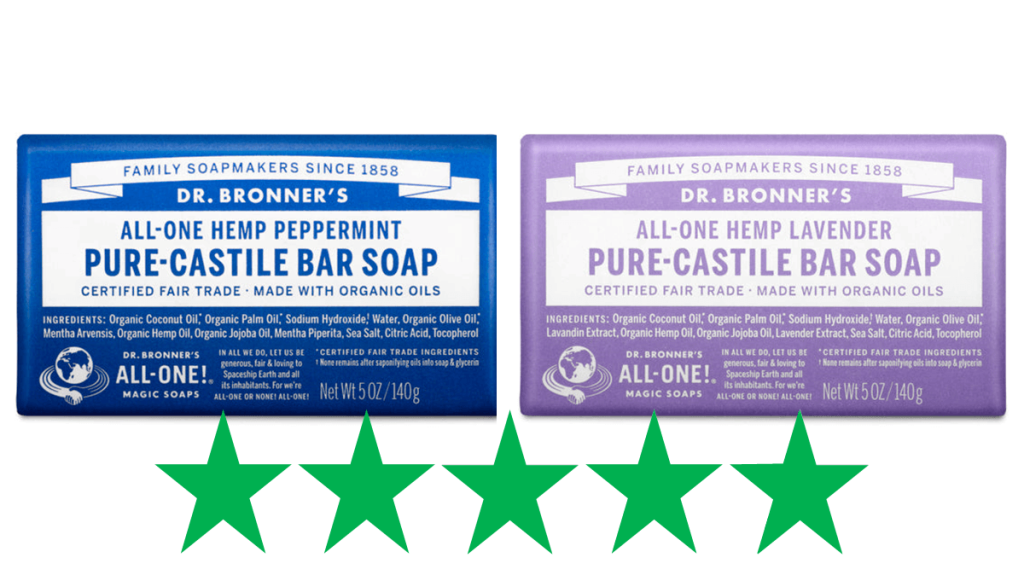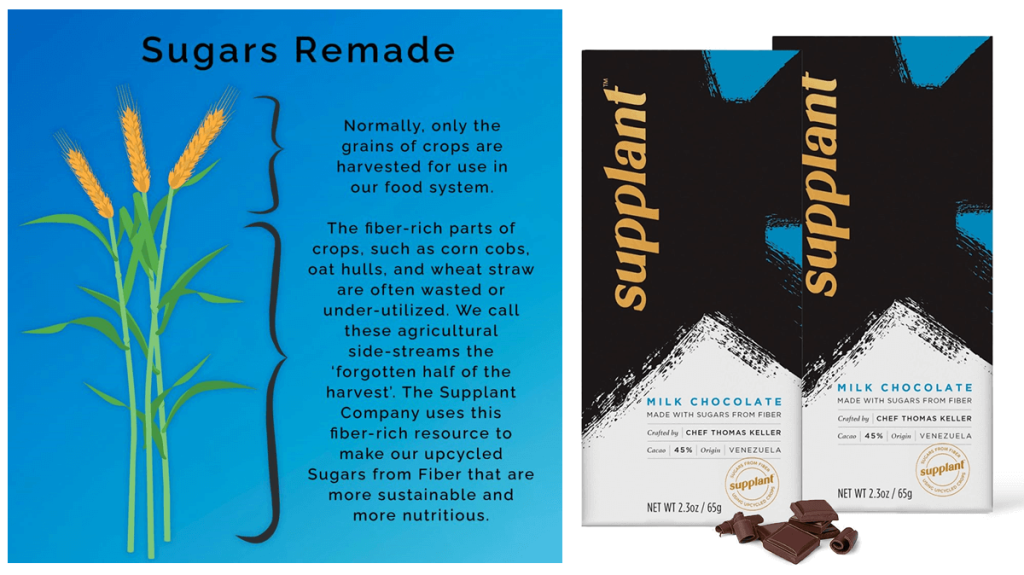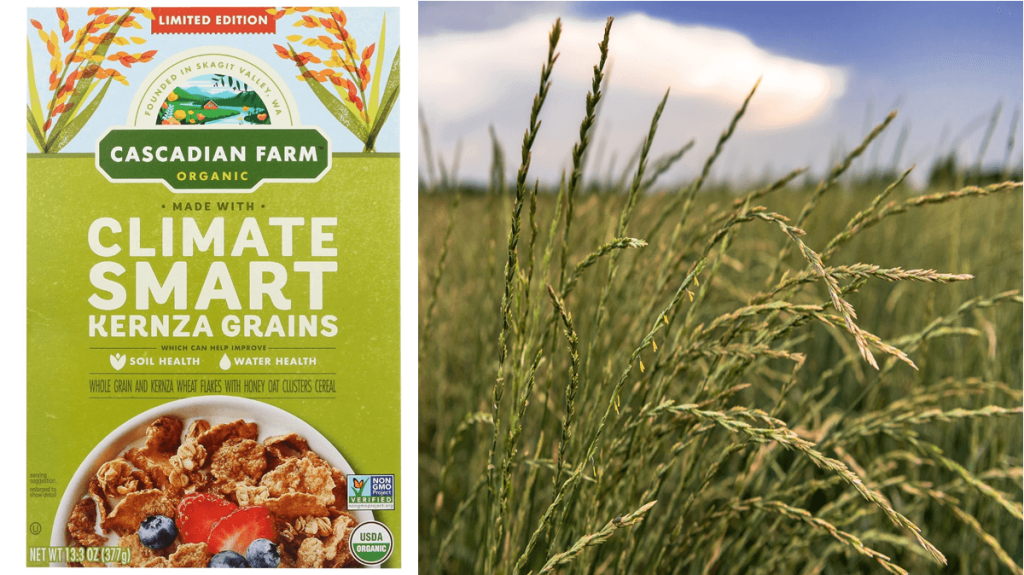Originally formed all the way back in 1977 and known as Tempeh Works, Lightlife Foods is known for its tempeh and perhaps more so for its bestselling plant-based Smart Dogs. I picked up some Lightlife Tempeh (smoky bacon strips) at the Grocery Outlet for $3 (normally around $5) and was surprised at how good it was. I’ve had mixed experiences with tempeh but Lightlife’s Smoky Tempeh Strips definitely ranks among the best that I’ve had. They are really easy to cook (just pan fry on medium heat in a few drops of olive oil for a few minutes) and make for a really good bacon substitute.
Like bacon, you can cook it to your desired level of crispiness, and it works well in sandwiches with lettuce, tomato, avocado, etc. Also like bacon, it’s pretty high in salt, but I find that just two strips is sufficient for lunch or breakfast rather than the recommended serving size of four strips – so that’s a more reasonable 15% of my recommended sodium intake.
In most other ways, it’s far superior to bacon and other meats in terms of nutrition and sustainability (more below). I’ve picked up Lightlife products several times over the years and sometimes put them down again (depending on the ingredients) but this time I noticed that the tempeh is organic so I took a chance on it. The company has a long history, with multiple owners, which probably explains why Lightlife products (ingredients) have fluctuated over the years. In fact, Lightlife reformulated recipes and ingredients for many of its products in 2021 and it looks like all products are now vegan.
Lightlife ownership
The history of Lightlife Foods is like a microcosm for the history of the plant-based foods movement in general. Since the late 1970s until 2000, Lightlife grew operations in Massachusetts, experimenting with a range of plant-based products over the years. Then Lightlife was acquired by giant food conglomerate, Conagra – I recently profiled Conagra Brands and how its takeover impacted the integrity of Earth Balance. As mentioned on Wikipedia, acquisition of plant-based brands by giant corporations was happening a lot at the time:
The sale was made due to the changing landscape of the natural foods industry; competitors were purchased my Kellogg’s and Kraft Foods, and a small independently owned company would not be able to compete with such huge food conglomerates.
Well, it’s a shame, but perhaps it was true as Lightlife’s president has commented: “We were just two hippies in 1970s. We did not plan on building this size of a company.” American investment firm, Brynwood Partners, acquired the company in 2013 and then it was sold to Maple Leaf Foods in 2017. Maple Leaf Foods sounds idyllic but is actually one of Canada’s biggest meat companies.
Perhaps to establish some distance between the meat and vegan branches, Maple Leaf Foods established an independent subsidiary, Greenleaf Foods that encompasses its two plant-based brands: Lightlife and Field Roast.
Lightlife tempeh strips – Ingredients & Nutrition Facts
Ingredients: Water, Cultured Organic Soybeans (Organic Soybeans, Lactic Acid From Plant Sources), Organic Tamari Soy Sauce (Water, Organic Soybeans, Salt, Organic Alcohol), Organic Cider Vinegar, Organic Cande Surgar, Natural Smoke Flavor, Sea Salt, Less Than 2% Of Organic Onion Powder, Brown Rice, Beet Powder (Color), Organic Spices, Xanthan Gum.

It’s nice to see that the tempeh is organic. In a Green Stars Project post on sustainability of tofu and other soy products, I mentioned that it’s a good idea to seek out organic products (to avoid neonics for one thing).
There are a lot of health benefits to eating tempeh – even WebMD gives it a good write up and they almost never commit to anything! Because it’s fermented by a fungus, it can be a good source of B vitamins, including some B12. It also contains a lot of fiber that’s probably good for gut health, as well as antioxidants, calcium, iron, and protein of course.
Lightlife Versus Beyond Meat and Impossible Foods
Back in summer 2021, Lightlife issued an open letter to Beyond Meat and Impossible Foods saying, “enough with the hyper-processed ingredients, GMO’s, unnecessary additives and fillers, and fake blood.”
Impossible Food’s response was equally heated and drew attention to the fact that Lightlife is owned by a meat company and referenced cheap tactics used by the meat industry to undermine the plant-based food movement.
Beyond Meat’s response basically pointed out that Lightlife’s accusations simply don’t apply to their products:
If they were clear on our ingredients, they would see that our products are made with simple, plant-based ingredients. With no GMOs. No synthetically produced ingredients. Our products are designed to deliver the same taste and texture as animal-based meat but are better for you and the planet. – Forbes
I guess the letter was timed to coincide with Lightlife’s reformulation of its products and even though it was claimed to be a conversation starter (!) it clearly looks like a PR stunt. If anything it just highlighted the differences between Impossible Foods and Beyond Meat. (I’ve previously rated Beyond Meat at 4.5 Green Stars while Impossible gets 3 Green Stars).
Lightlife carbon neutrality
Lightlife’s packaging announces that it (or rather, parent company Greenleaf Foods, which owns Lightlife and Field Roast) is a carbon-neutral company. Carbon emissions are offset via two wind energy products (certified by Green-e) and a forest conservation funding (certified by the American Carbon Registry). The company also has targets for reduction of carbon emissions:
We’ve reduced our greenhouse gas emissions and are neutralizing our remaining unavoidable emissions. By 2025, we aim to reduce our environmental footprint by 50% and our absolute carbon emissions by 30% by 2030.
In fact, Greenleaf’s parent company, Maple Leaf Foods, also states that it is carbon neutral and provides the benchmark date that Lightlife forgot to mention (2015).
Unfortunately, on the Maple Leaf consumer site, links to the carbon strategy and sustainability are all broken. I eventually found information and a sustainability report on the Maple Leaf Foods corporate site. Sheesh! Anyway, communication issues aside, it looks like Maple Leaf (and Lightlife) are on a legit journey to improve on impact.
Ethical rating for Lightlife tempeh strips
Here’s a summary of how I feel about the social and environmental impact of Lightlife tempeh strips, which I’m rating 4.5 out of 5 Green Stars:
- All Lightlife products are vegan. Adopting a plant-based diet is the top thing you can do to mitigate deforestation & climate change and to end animal cruelty and the insidious negative impact that the meat industry has on society.
- Lightlife’s main ingredient, the soy bean, is a legume that reduces the need for nitrogen fertilizer by fixing nitrogen from the air and also enriches the soil in which it is grown.
- All of the major ingredients in the tempeh are organic – choosing organic (or at least non-GMO) is important for soy products if you care about bees and other pollinators.
- All Lightlife products are non-GMO certified since 2017.
- Lightlife’s parent company, Greenleaf Foods, is a carbon neutral company (as is Lightlife’s grandparent, Maple Leaf Foods).
- Room for improvement: Lightlife could do a better job at communicating on some social and environmental issues. Most importantly, where are the soybeans sourced from?

I have no love for meat companies – even the social impact of the meat industry is horrendous. So my skepticism runs high while researching Lightlife and its parent corp., Maple Leaf Foods. However, I’ve been increasingly thinking that it’s good to support vegan brands even when owned by less ethical corporations, if we want things to change. And it genuinely looks like Lightlife is a brand that’s worthy of support.
Summary scores (out of 5) for Lightlife tempeh strips:
- 4.5 gold stars for quality and value
- 4.5 green stars for social and environmental impact
If you have a different opinion, please share your rating! Until next time, stay safe : )






Leave a comment